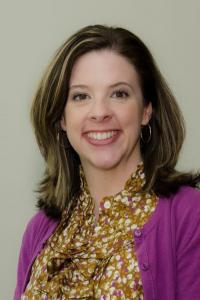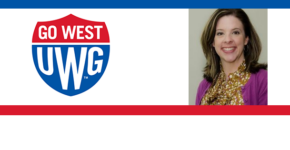 On University of West Georgia Week: Freshman year can be tough for students, but what about the second year?
On University of West Georgia Week: Freshman year can be tough for students, but what about the second year?
Dena Kniess, assistant professor in the department of communication sciences, explores this question through underrepresented populations on campus.
Dr. Dena Kniess is an associate professor of higher education administration and college student affairs in the College of Education at the University of West Georgia. She received her Ph.D. in Educational Leadership – Higher Education from Clemson University, a master’s degree in College Student Personnel and a bachelor’s degree in English-Writing from Slippery Rock University. Dr. Kniess’s research foci include assessment in higher education, college student access and success, faculty development, and multicultural issues in higher education. Dr. Kniess spent 11 years working as a student affairs administrator in residence life and student transition programs.
This segment was recorded at The WOLF Internet Radio in the Department of Mass Communications at the University of West Georgia.
Second-Year Experiences for Underrepresented Students on Campus
Research on students’ experiences of their second year on campus has focused on broad concerns, such as declines in academic performance, uncertainty regarding majors, and finding purpose. Limited attention has been given to the second-year experience for underrepresented student populations, specifically African American students. My research focused on the second-year experience for African American students at a predominantly White institution, or PWI, in the Southeast.
Theories on college student retention have focused on students’ ability to integrate into the values and norms of the college environment. For underrepresented college students on PWIs, integrating oneself into the college environment implies shedding or leaving behind one’s racial and/or ethnic identity to successfully move through college. For this case study, I identified forms of capital African American students possessed and used to transition into their second year of college using Yosso’s Community of Cultural Wealth model from 2005. This model describes six forms of capital underrepresented students use to persist in the college environment: aspirational, linguistic, familial, social, navigational, and resistant capital.
Overall, students described their second-year in more positive terms than their first year. Students indicated the importance of peer networks, specifically African American peers, in providing the social capital and peer support to navigate a PWI. Peer mentoring networks and living-learning communities designed for African American students were identified as avenues providing crucial social support as they weighed whether or not to return to this PWI. Finally, students described the importance of aspirations, not just for themselves, but for their families and the African American/Black community, in returning for their second year at the PWI.

Comments
4 responses to “Dena Kniess, University of West Georgia –Second-Year Experiences for Underrepresented Students on Campus”